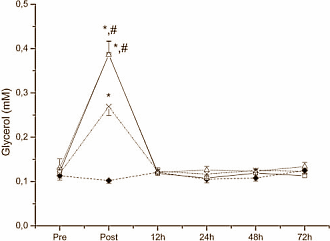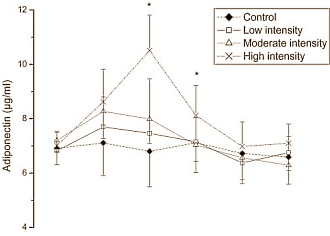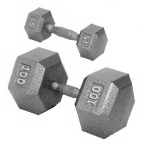|
Definition: "An ergogenic aid is any substance or phenomenon that enhances performance "
|
|
||||||||
17.06.2011 |
|
|
Heavy strength training burns hundreds of calories for days afterwards
Sports scientists used to think that the only way to burn fat was to do long sessions of moderate exercise, but recent studies have shown that short high-intensity training sessions also work. The fat burning doesn't only happen during the intensive sessions, but goes on afterwards too. This is the phenomenon known as EPOC. Greek sports scientists discovered that over 65s can benefit from this way of exercising too, especially if they train with heavy weights.
Study
The researchers got the men to train for an hour. During the workout the men trained all of their large muscle groups, doing 3 sets of basic exercises.
The men were divided into 4 groups. The low-intensity group trained using weights of 45-50 percent of their 1RM and rested for 2 minutes between sets. The moderate-intensity group trained with 60-65 percent of their 1RM and rested for 4 minutes between sets. The high-intensity group trained with 80-85 percent of their 1RM and took 6-minute breaks between sets. The control group did nothing.
Results




In the days following the training session, the adiponectin level remained considerably higher in the high-intensity group. Adiponectin is a hormone that makes muscles extract more nutrients from the blood. The cortisol level was lower in the high-intensity group than the other groups after the training session.
The high-intensity group had a raised energy expenditure [REE] for days after the test. During the period that the researchers took measurements, the men in the high-intensity group burned several hundred calories more. The energy was spent on helping the body to recover from the strength training. Almost all of this energy for EPOC is derived from fat.
Conclusion
Source:
More:
|
|

